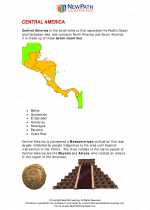Thurgood Marshall
Early Life
Thurgood Marshall was born on July 2, 1908, in Baltimore, Maryland. He was the great-grandson of a slave and his father worked as a steward at an exclusive club. Marshall attended Lincoln University and later Howard University School of Law, where he was mentored by Charles Hamilton Houston, a prominent civil rights attorney.
Legal Career and Civil Rights Activism
After graduating from law school, Thurgood Marshall became a prominent civil rights attorney and a key figure in the legal battle for racial equality. In 1936, he joined the legal staff of the National Association for the Advancement of Colored People (NAACP) and became the organization's chief counsel in 1938. Marshall argued numerous cases before the Supreme Court, including Brown v. Board of Education, which led to the landmark decision in 1954 that declared segregation in public schools unconstitutional.
Supreme Court Justice
In 1967, Thurgood Marshall was appointed as the first African American justice of the United States Supreme Court by President Lyndon B. Johnson. During his 24 years on the Supreme Court, Marshall continued to support civil rights and became known for his liberal views and strong defense of individual rights. He retired from the Supreme Court in 1991.
Legacy
Thurgood Marshall's legacy as a champion of civil rights and a trailblazer for African Americans in the legal profession continues to inspire generations. His work as a lawyer and his tenure on the Supreme Court have left a lasting impact on the fight for equality and justice in the United States.
Study Guide
- What was Thurgood Marshall's role in the legal battle for racial equality?
- Which landmark case did Thurgood Marshall argue before the Supreme Court?
- When was Thurgood Marshall appointed as the first African American justice of the United States Supreme Court?
- Describe Thurgood Marshall's legacy and impact on civil rights.
[Thurgood Marshall] Related Worksheets and Study Guides:
.◂Social Studies Worksheets and Study Guides Eighth Grade. Central America

 Worksheet/Answer key
Worksheet/Answer key
 Worksheet/Answer key
Worksheet/Answer key
 Worksheet/Answer key
Worksheet/Answer key
